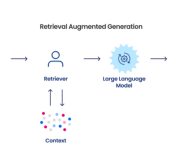Top 5 Mistakes Companies Make with Data Science
Today, such concepts as “big data” and “real-time” analytics are strongly entering the enterprise world. Data-driven decision-making has proven to outperform intuition and questionable judgement. How can companies tackle advanced data technologies to achieve their goals? Which issues can they face? Here are several things to avoid on their data science path.
1. The absence of defined metrics.
Data collection is only the first step towards a data-driven organization. Interpreting results and making corresponding actions is what determines the efficiency of your undertakings. Defined metrics enable you to contextualize the data in a proper way. Otherwise, you may fail to formulate the right outputs from the inputs you have got, undermining the value of the received data. Without the proper metrics, you are bringing back guessing and intuitive decision-making. Defined metrics are fundamental for creating a data-driven company as they allow transparent reporting of relevant data.
2. Employing a wrong professional.
In order to conduct a data-driven transformation, a company should make competent hires from the very start. Unfortunately, not all organizations have a clear understanding of what skills and knowledge are required in the early phases of their data science journey. In fact, many companies hire a data scientist as their primary talent, which is usually not the best fit. What is really needed in the first stages is a person with contextual business experience that can match data with the proper business decisions. Business analysts, for instance, are likely to possess more relevant experience to help them efficiently cope with their work and provide useful outputs.
3. Focus on the buzzwords.
Such terms as AI, deep learning, and NLP are overused today, which makes many companies obsessed with them in their data-driven aspirations. However, this does not mean that all the groundwork should be neglected. In order to make those tempting concepts reality, organizations should ensure they will find the right place within a specific business. Instead of focusing on complex and ambitious projects, companies should rather prioritize their current business decisions and explore how they could be enhanced with the help of data analytics. As a result, business owners will form more reasonable expectations from their projects and avoid data science disappointments. Furthermore, leveraging data analytics for short-term projects and goals is more likely to enhance the existing business processes.
4. Leaving data quality issues unattended.
Obviously, the quality of your analytics is directly proportional to the quality of your data. This, however, does not imply only the proper data entry and correctly validated input fields but also much more subtle aspects. Thus, there can be near-duplicate fields created to address related needs for different business stakeholders, which are not always properly communicated. This, in turn, can lead to unnecessary complexity for any correspondent analysis or even invalidate work done without clarification. Subsequently, automation and reporting will be impeded, and the only possible way to fix the issue may appear to be manual workarounds.
5. A failure to apply agile management.
Your previous experience in software management may require changes once the data science has been applied. Data science itself is an exploratory and open-ended domain. Therefore, your expectations and progress may need day-to-day adjustment. Without the application of agile management, setting specific tasks and goals may not suit the traditional Scrum approach. The series of sprints implied by this methodology can become unnecessary or even overbearing. In order to succeed with the data-related work and integrate it seamlessly into the company’s culture, you should properly adjust your project management methodology.
Conclusion
In the end, the future of your organization should rely on competent and thoughtful planning. If you want to embark on a data science journey, you should assess your company from various angles and estimate potential effects versus your business goals. Besides, you should be aware that the results of the transformation cannot be attained in one fell swoop. In order not to waste your time, resources, and valuable information, you may need a professional partner that provides big data solutions. An experienced vendor will deliver efficient big data management services that will help you implement sustainable growth strategies and propel your business forward.




























